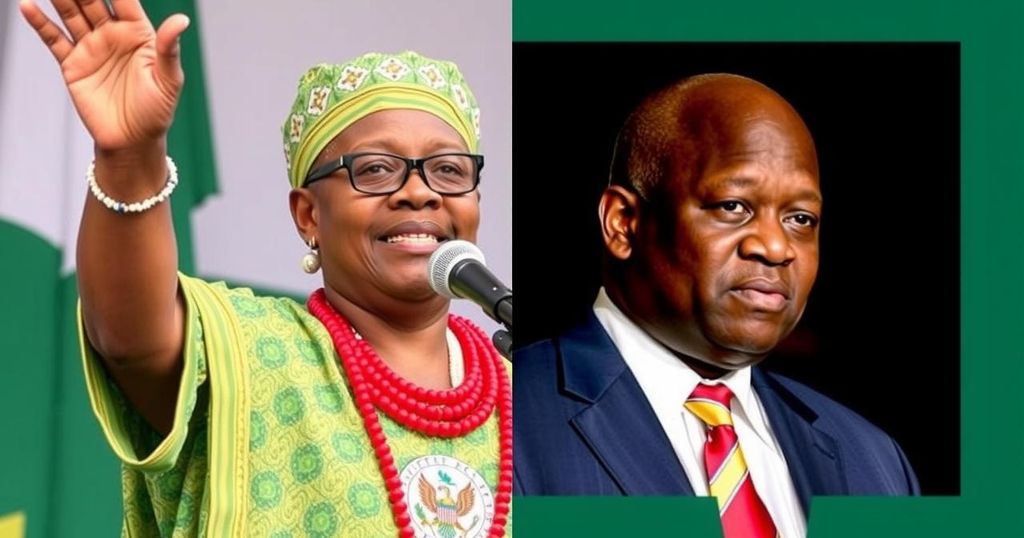Ghana’s 2024 Election: NPP Suffers Defeat to Mahama Amid Economic Crisis

In the 2024 Ghana elections, the ruling New Patriotic Party (NPP) led by Nana Akufo-Addo suffered a defeat to the National Democratic Congress (NDC) led by John Mahama. Economic turmoil, high inflation, and public dissatisfaction played crucial roles in this historic shift. The NPP’s efforts to retain power were undermined by rising grievances among voters concerning living conditions and government transparency.
In the recent elections in Ghana, the ruling New Patriotic Party (NPP) and President Nana Akufo-Addo faced a significant defeat against the opposition National Democratic Congress (NDC) led by John Mahama. This marked a historical shift, as no party has maintained power for over eight years since the start of Ghana’s fourth republic in 1992. The NPP’s campaign slogan aimed to “break the eight” years of governance, yet the dire state of the economy, marked by severe inflation and widespread dissatisfaction, dictated the election outcome. Political analyst Mussa Dankwah noted that the economic hardships, compounded by high unemployment rates and dissatisfaction with government policies, directly influenced voters’ decisions to oppose the incumbent administration.
Despite the NPP’s previous initiatives, such as free senior high school education and promises of digitalization, these measures failed to resonate with the electorate who struggled with the immediate crises of living costs and job scarcity. The opposition capitalized on public grievances, arguing that an additional term for the NPP would exacerbate already existing issues. Many surveys preceding the elections indicated a strong preference for the NDC, with reports showing a significant drop in support for Dr. Bawumia, the NPP’s candidate.
In the election results, the NDC not only won the presidential seat but also gained ground in key parliamentary districts previously held by the NPP. Notably, several ministers from the ruling party lost their parliamentary seats, a clear indication of the electorate’s discontent. Ghanaians overwhelmingly expressed their dissatisfaction with the NPP’s handling of core issues such as corruption, economic decline, and social welfare, leading to widespread calls for change that culminated in Mahama’s victory.
The political climate in Ghana has seen a significant shift, particularly in the wake of consecutive years of economic challenges. Since becoming a democratic state in 1992, Ghana’s constitution has traditionally allowed for four-year terms, and the populace has generally re-elected ruling parties unless substantial public discontent arose. The NPP, in power for the previous eight years, aimed to set a precedent by winning a third term amidst rising inflation rates, job losses, and a cost of living crisis—factors that ultimately overshadowed their campaign efforts. This election reflects a broader regional trend in Africa, where ruling parties have faced increased opposition, leading to significant political turnover in several countries this year.
In conclusion, the 2024 elections in Ghana serve as a pivotal moment that underscores the powerful impact of economic management, governance transparency, and public sentiment on electoral outcomes. The NPP’s loss to the NDC not only highlights the electorate’s demand for accountability and change but also signals a potentially shifting political landscape for future governance in Ghana. With a new administration in power, significant challenges remain in stabilizing the economy and restoring citizen confidence in government institutions.
Original Source: www.bbc.com








